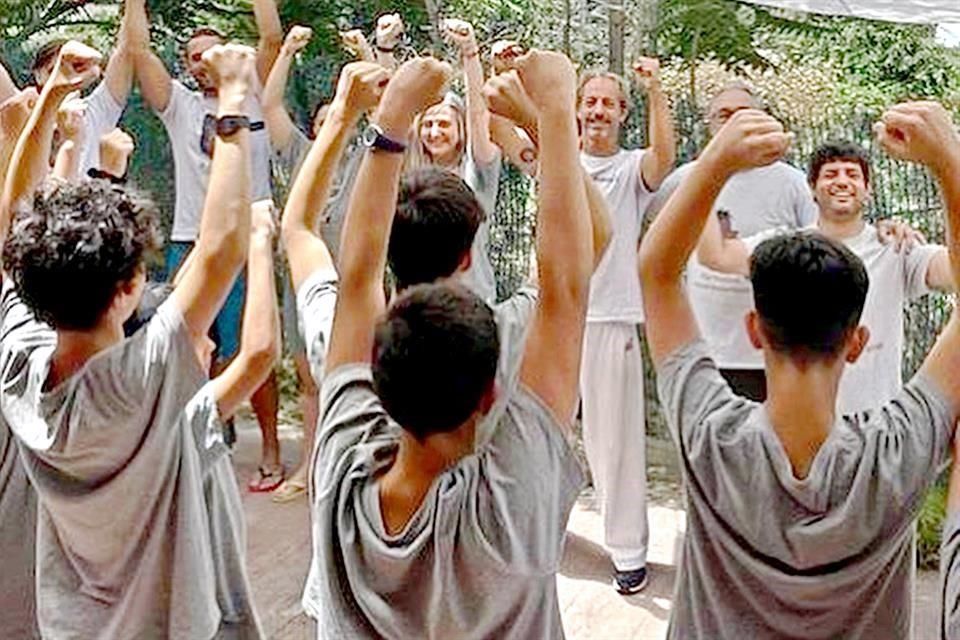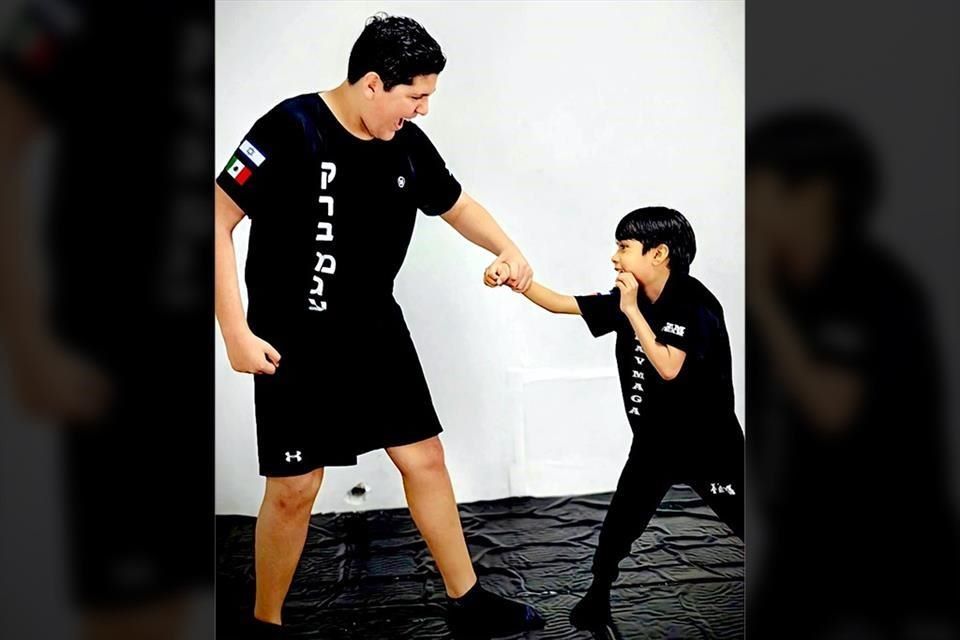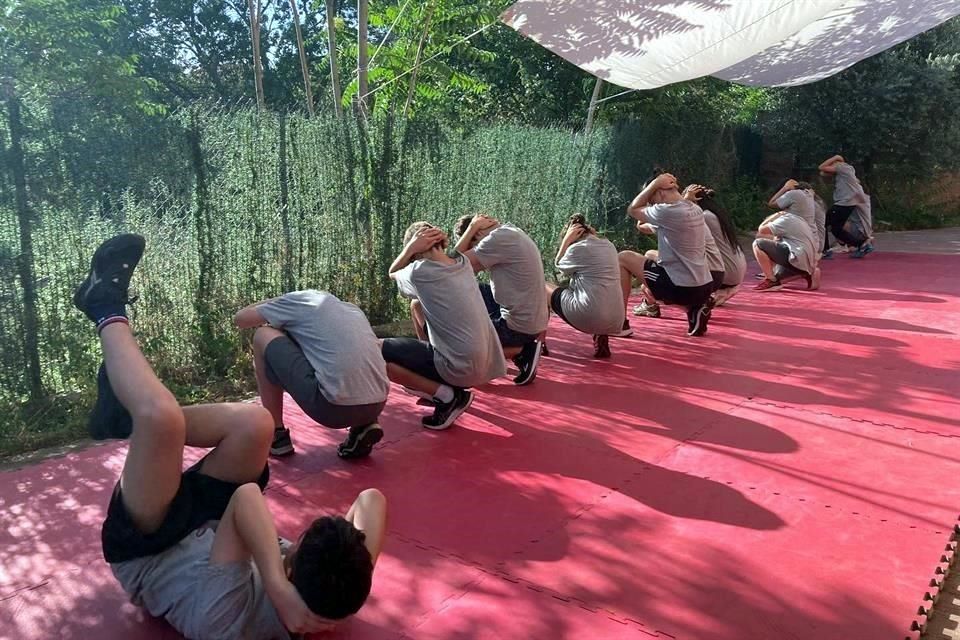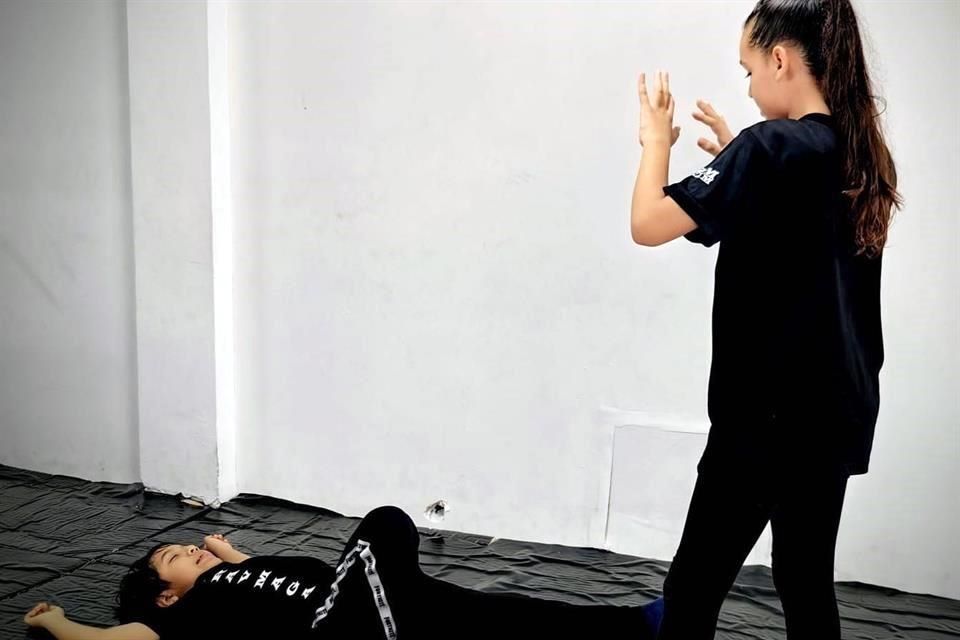
Faced with the problem of bullying, parents decide to send their children to camps where they are taught self-defense, emotional management, and skills.
"Self-defense is one more element, but it shouldn't be the most important, because otherwise we're sending a message to a child that violence is the solution. Martial arts are an essential part of the empowerment process, but other complementary tools are needed to teach that child that there's a progression in any conflict, in which physical violence will be the last."
Enrique Pérez-Carrillo de la Cueva President of the Spanish Association for the Prevention of Bullying (AEPAE) and martial arts expert
For nine years, the AEPAE has designed a program of activities for children who have experienced "severe" bullying. In addition to a self-defense protocol, the program also includes psychoassertiveness techniques, body theater, and art therapy.
The camp is called "Building Trust" and was held this year in June in Madrid.
While enjoying outdoor activities, the program focuses on disinhibition, survival, and assertiveness; emotions such as fear, sadness, and frustration; diversity; and trust.
Several of the children who attended have suffered from post-traumatic stress disorder, attempted suicide, and self-harm, problems that Pérez-Carrillo observes increasing each year at the camp.
"We work on anger and sadness because these children harbor a lot of anger, pent-up frustration from having been bullied, and the feeling of not being seen. These are children who, through the process of abuse, have learned to feel helpless. We need to pull them out of that passive, inhibited state and restructure their attitude and emotions so they can move beyond the victim role."
Enrique Pérez-Carrillo de la Cueva President of the Spanish Association for the Prevention of Bullying (AEPAE) and martial arts expert

An anti-bullying camp is currently taking place in Monterrey for the third consecutive year, held by the Krav Maga IZM Team academy, which specializes in Israeli self-defense techniques. At the camp, self-defense is seen as a tool for building self-confidence in children.
A mother who enrolled her two children told EL NORTE that one of them, aged 10, had experienced bullying in his classroom, while the other, aged 12, had intervened to help friends being bullied by older children.

There's physical defense, as well as work on mental control, assertiveness, and nonverbal communication, said Zamaihu Marcano, director of the academy.
The activities last a month (ending on August 1st and then opening for another month) and are attended by up to 50 children between the ages of 5 and 13, who also learn to recognize bullying by any adult, as well as how to ask for help.
"A child with high self-esteem, who knows how to smile, make friends, and communicate, will be much less prone to bullying than a child who is withdrawn, introverted, and who doesn't speak or look people in the eye," Marcano said.
Mariela, another mother, said she enrolled her 8-year-old daughter in this camp as part of her right to defend herself. "Above all, to respect other people," she said.
Marina Pérez, a psychotherapist, points out that in an anti-bullying program, children should know the strategies before hitting: first, identify the reason for the attack and try to negotiate.
Immediately, if a negotiation fails, seek support from the school and inform the parents so they can intervene.
"It's important for children to develop self-esteem, appropriate socialization guidelines, and understand the school's protocols for asking for help.
"Physical boundaries should only be used when there is a risk to one's safety." Self-defense, he noted, begins at home.
"The family environment provides important resources if we allow a child to talk about what they like and dislike, what they fear, and we give them alternatives to deal with it.
"If you receive respect for your opinion, you learn to be assertive, you discover your worth as a person, and you learn to defend yourself."

- Show yourself as you are so your classmates can get to know you.
- Don't be afraid to express your feelings.
- Don't let anyone mistreat you: verbally, physically, or psychologically.
- Set challenges and small goals every day: confidence is built step by step, and don't be afraid to make mistakes.
- Never resort to violence. Learn to resolve conflicts peacefully, yet actively.
- Use social media responsibly and do not share private information about others.









